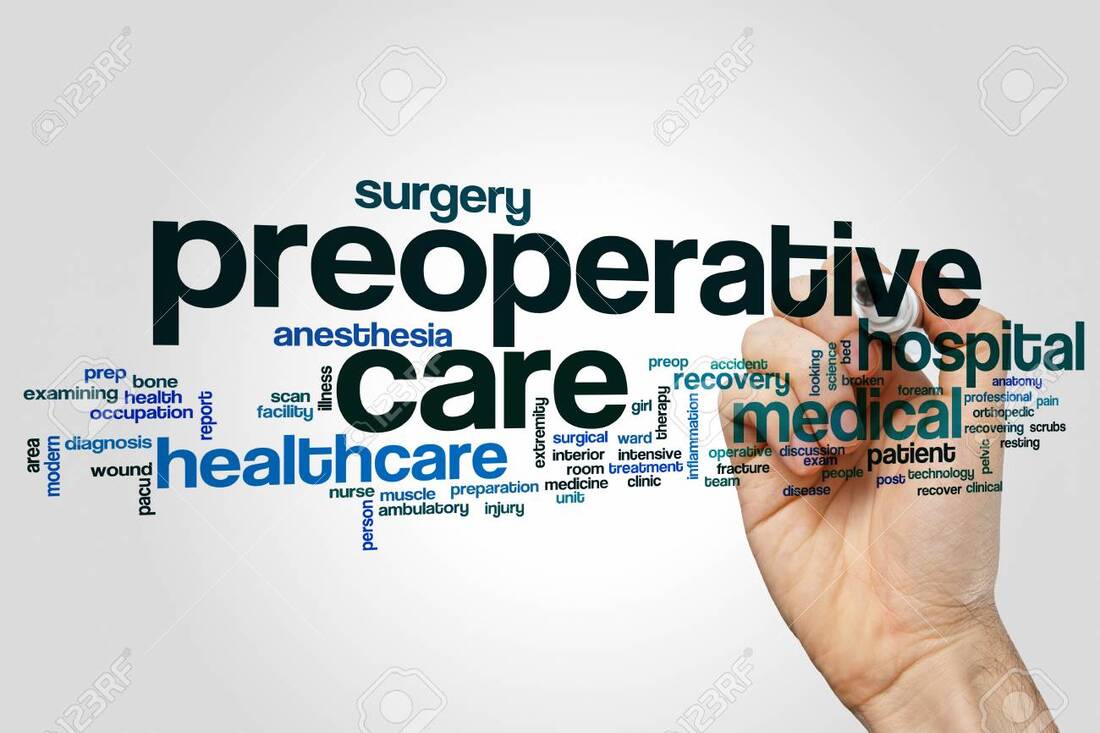|
Ever wonder what to expect before surgery? Dr. Wilshire and nurse Kim discuss what to expect in a pre-op visit before surgery. Hello. I'm Dr. Gil Wilshire of Missouri Fertility. And I'm Kimberly Ritter, RN, BSN, Surgical Coördinator. G: Today, we're going to be discussing your preoperative preparation. At this point, you've probably had a chat with us about having surgery, we've probably discussed the risks, benefits, and alternatives, and we have all decided that surgery is a good idea for you. Most of our surgeries will be laparoscopic or minimally invasive, so your recovery should be very rapid. Some of you may be having a larger incision and a larger surgery, and obviously your recovery will take a little bit longer, but our standard instructions go something like this—you're going to need a bowel prep. How do you like those bowel preps done, Kim? K: Approximately two days prior to your surgery, we would like for you to get a laxative--magnesium citrate, and drink that the morning of the two days prior to the surgery date. G: So, two days before the surgery, in the morning, you are going to drink this bottle of magnesium citrate. I've heard if you pour it over some ice, it's all right. Maybe a little juice. K: Right. You can put it in the refrigerator, just chill it a little bit, and it's ready to go. This is about an 8 to 10 ounce bottle, sold over the counter at any pharmacy. Just ask the pharmacist and they can help you with that. G: Yes. This bowel prep is not like a bowel prep you would have for a colonoscopy. This is essentially just to get your bowels basically empty. We want you to have a large bowel movement the day before the surgery, so you can come into surgery basically empty, and then you won't have to go to the bathroom for a day or two afterwards either. K: True. Perfectly. And after you consume the magnesium citrate, you can eat lightly that day. G: Yes. Just eat lightly. You don't have to be N.P.O. (which means "nothing by mouth"), but eat lightly the two days before the surgery. Now, the night before the surgery at midnight, what happens, Kim? K: I'd like for you to not eat or drink anything after midnight the night before the surgery. G: Nothing. K: And do not eat or drink anything the morning of your surgery date. G: That's right. You can brush your teeth, but make sure you spit the water out. We want to make sure that you have an empty stomach. Now, the one exception is for medications, I believe. K: If you should have any questions or any concerns, you will be seeing the anesthesiologist and the nurse prior to your surgery, They will call you two days prior to your surgery. G: That's right. They will be telling you what medications you might take the morning of the surgery with a small sip of water; that's okay, and they will be talking to you about that. You might need a blood pressure medicine or a thyroid medicine. There are a few medications they might want you to take, but most of your medications you probably will not take the morning of the surgery. Also, the morning of the surgery, Please take a shower. We want you clean, okay. You don't have to put on fancy make-up or perfume or anything, just come in clean with your teeth brushed. After the surgery, generally what happens, Kim? K: Recovery time after surgery, you can expect four to five days, We will see you back in the office for a post operative visit approximately seven to ten days after your surgery date. G: That's right. After the surgery, we will have what I call a Debriefing Visit. We'll talk about what we found, and we'll talk about future plans, depending on what we found and what we accomplished. Most of our surgeries are minimally invasive, and recovery is generally very rapid, but we generally like for you to take it easy for at least two or three days after the surgery. Many women are able to go back to their normal activities in four to five days, but—as they say--your results may vary. There you go. So, Kim, thank you for your insights. It's wonderful working with you, and I look forward to doing another wonderful surgery, here at Missouri Fertility.
0 Comments
|
�
Archives
March 2023
Categories
All
|
- About Us
-
Services
- Infertility >
- Fertility >
- Third Party Reproduction
- Reproductive Surgery
- Patient Resources >
-
Fertility Facts
>
- Age & Infertility
- Conception 101
- Endocrine Disorders
- Endometriosis
- Fallopian Tube Issues
- Female Infertility
- Infertility FAQs
- Infertility Myths
- Male Infertility
- PCOS
- Pelvic Pain
- Premature Ovarian Failure
- Recurrent Pregnancy Loss
- Secondary Infertility
- Sexually Transmitted Disease
- Unexplained Infertility
- Uterine Disorders
- IVF
- Blog
- Contact
- Patient Portal
|
|
Missouri Fertility
1506 E Broadway Suite 220 Columbia, MO 65201 [email protected] Phone: 573-443-4511 Fax: 573-443-7860 |
Patient Portal |


 RSS Feed
RSS Feed
